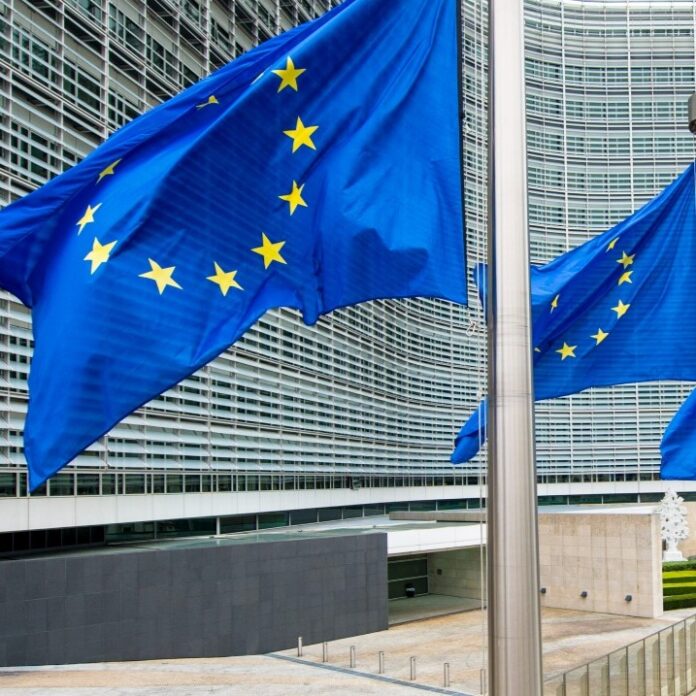Belgium’s Justice Minister has resigned after it emerged that Abdesalem Lassoued, the Tunisian national who shot dead two Swedish football fans in Brussels on Monday, had been living illegally in the country despite a deportation order dating from 2021 and a subsequent extradition application by Tunisian authorities that was never processed.
Justice Minister Vincent Van Quickenborne said he was “taking responsibility for this unacceptable mistake.”
Lassoued, who posted a video claiming his attack on the Swedes was ISIS-inspired, died of wounds he received when Belgian police caught up with him next morning after an overnight search.
He has now become the new face of the EU’s campaign to toughen border controls, rapidly deport people and allow police and security agencies to exchange information more freely and efficiently.
When EU interior ministers met in Luxembourg on Thursday, EU Home Affairs Commissioner Ylva Johansson told reporters that it was vital that individuals representing “a security threat to our citizens, to our Union, have to be returned forcefully, immediately.”
The Commission is looking into the issue of internal border checks, which she described as one of the challenges of the Schengen area. Johansson, did caution that “internal security or illegal border crossing, internal border controls also hamper free movement,” and that this should be avoided where possible.
Belgium’s top migration official, Nicole de Moor, has declared that countries that refuse to take back their nationals must be made to cooperate. “The terrorist that committed an attack in Brussels on Monday had asked for asylum in four different European countries, and every time he was rejected because he did not qualify for protection,” de Moor noted.
The EU has coercive tools at its disposal. For example, the need for a visa has made it more difficult, more time-consuming and costlier for migration source nationals to gain entry to the Schengen area, the EU’s 27 member ID check-free zone.
According to Commissioner Johansson, this is why the EU today has “much better cooperation” on deportation issues with Iraq, Bangladesh, Pakistan and Senegal.
The Lassoued case was also marked by other failures. “It turns out that the individual had been convicted and had served time in a Swedish prison, which was unknown to our police and judiciary,” Belgian Interior Minister Annelies Verlinden told media. “We need to improve the information exchange on these kinds of things. The man apparently arrived in Italy in 2011 (and) wandered around Europe for 12 years,” she said. Migration services and the police must share information, she said, “to ensure that this cannot happen.”
Italy and Slovenia introduce border checks
This week, Slovenia announced plans to introduce border checks with neighbouring Hungary and Croatia, a move that follows Italy’s decision to suspend its open-border agreement with Slovenia.
Slovenian authorities said the border controls now being introduced will last for at least 10 days. Italy is doing likewise.
The moves reflect growing security concerns in EU member countries arising from the Israeli/Hamas conflict. Slovenia’s government also cited a surge in organized crime activity in the region.
Slovenia’s Interior Minister Boštjan Poklukar told the EU meeting in Luxembourg that the authorities will set up special checkpoints for EU citizens and local residents living in the border area.
Slovenia, Italy, Croatia and Hungary all belong to the Schengen area, which constitutes the world’s largest visa-free travel zone. However, “in the event of a serious threat to public policy or internal security”, Schengen nations can reintroduce border controls on a temporary basis.
In Zagreb, Croatia’s Prime Minister Andrej Plenković underscored the temporary nature of the move, stressing that “it must remain the exception”. He said the need for such measures stemmed from “increased migration movement and (or) terrorism threat.”
Italian government officials said that so far this year authorities in the country’s northeastern border region had identified 16,000 people who had entered Italy illegally across the Slovenian border. That is in addition to the 140,000 migrant arrivals in Italy by sea, an increase of 85% over 2022.
Denmark and Sweden are among the other countries introducing Schengen area border checks. France, meanwhile, plans to retain its system of border checks at least until May 2024.

